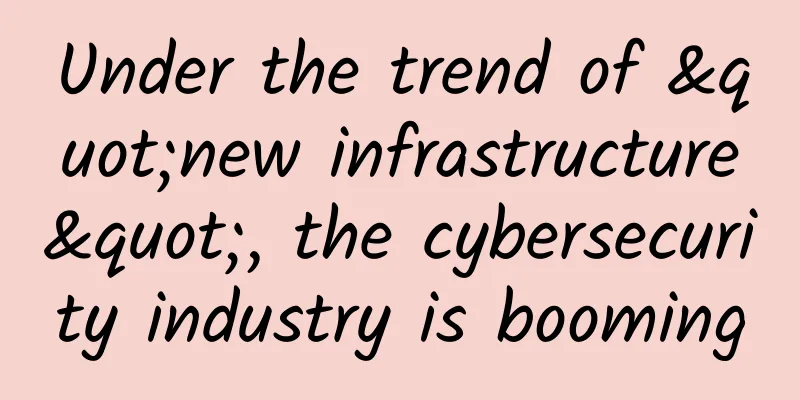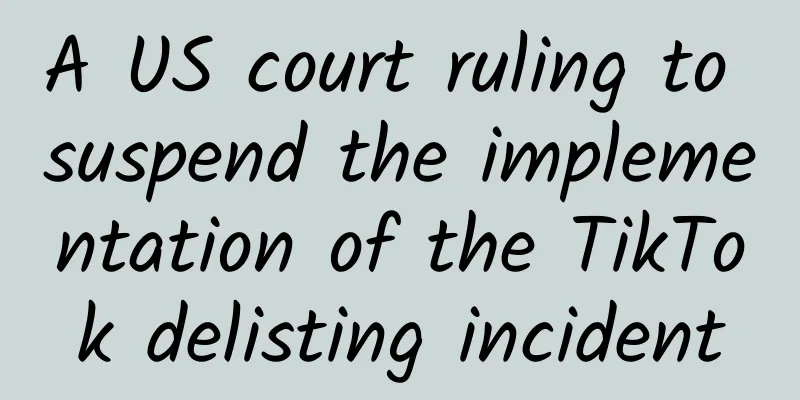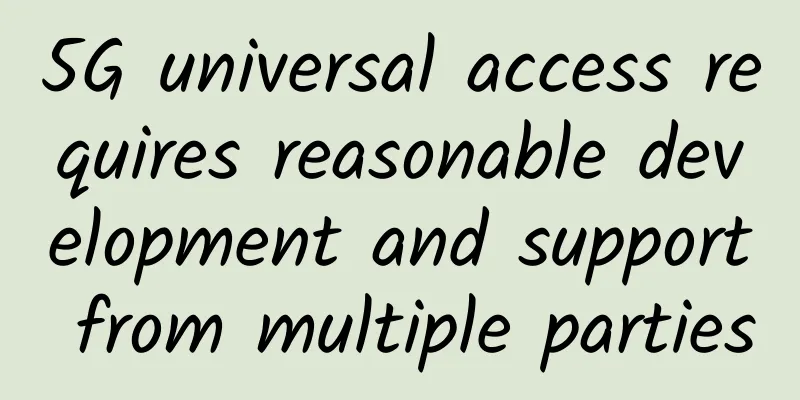Mixed ownership reform and restructuring: what are the three major operators doing?

|
The most eye-catching thing in the communications and Internet industry in 2017 is the vigorous mixed ownership reform of China Unicom. Mixed ownership reform refers to the mixed ownership reform of state-owned enterprises. From all kinds of gossip flying around to the half-hidden face, to the release of mixed ownership reform announcements and the completion of related delivery, every latest news has stirred the hearts of industry insiders and investors. In addition, there are two major news recently. The headquarters of China Telecom and China Mobile have successively issued announcements stating that according to the relevant requirements of the state for the corporate reform of central enterprises, with the approval of the State-owned Assets Supervision and Administration Commission of the State Council, the type of enterprise has been changed from a state-owned enterprise to a wholly state-owned company, and the industrial and commercial change registration has been completed. What is the difference before and after the reform? Many readers are not clear. In connection with the mixed ownership reform of China Unicom in 2017, friends are even more confused about what this is all about? Many people even questioned, are the three major basic operators no longer state-owned enterprises? Now let me tell you the difference.
1. What changes have been made to China Unicom’s mixed ownership reform? As early as 2014, there were rumors that the communications industry would be reorganized again, China Unicom and Telecom would be reorganized, and China Mobile and the State Radio and Television Corporation would be reorganized. It was not until 2016 that China Unicom was included in the first batch of pilot units for national mixed-ownership reform. In March 2017, Chairman Wang Xiaochu and General Manager Lu Yimin successively disclosed that China Unicom's mixed-ownership reform plan was under review by relevant national departments. In April 2017, China Unicom made it clear that it would use China Unicom, which is listed on the A-share market, as a platform for mixed-ownership reform. In July and August 2017, China Unicom's mixed-ownership reform plan was approved by national ministries and commissions, and then it issued a plan for the non-public issuance of A shares and a restricted stock incentive plan. In October 2017, China Unicom disclosed that the mixed-ownership reform had been completed. To summarize the mixed-ownership reform of China Unicom, in fact, China Unicom Group, the major shareholder of China Unicom Co., Ltd., which is listed on the A-share market, gave up its absolute controlling position in the listed company and introduced social capital from Internet companies represented by BATJ as strategic investors through the non-public issuance of shares by China Unicom A-share listed companies and the transfer of shares by Unicom Group. Through the mixed-ownership reform, China Unicom listed companies will form a diversified board of directors and management team, and appropriately introduce new directors representing state-owned shareholders and non-state-owned shareholders. This also means that Tencent, Baidu and Alibaba have the opportunity to enter the decision-making level of China Unicom A-share listed companies. In addition, Unicom's mixed-ownership reform will greatly improve its own problem of insufficient working capital, promote the improvement of the company's business decision-making mechanism, and strengthen the complementary advantages and cross-industry integration with Internet companies. China Unicom's mixed ownership reform is of great significance. It is not only the first large-scale state-owned backbone enterprise to complete mixed ownership reform, which has set an example for other enterprises to do so, but also provides an excellent opportunity for China Unicom's future development. After Unicom's mixed ownership reform, state-owned shares are still the largest shareholder, and China Unicom Group Co., Ltd. is the largest single shareholder. II. State requirements for corporate restructuring On July 18, 2017, the General Office of the State Council issued the Notice on Issuing the Implementation Plan for the Corporate Reform of Central Enterprises (Guobanfa [2017] No. 69), which marked the beginning of the corporate reform of enterprises. The document clearly states that the corporate system is an effective organizational form of the modern enterprise system and a necessary condition for establishing a modern state-owned enterprise system with Chinese characteristics. At present, the corporate reform of state-owned enterprises has reached more than 90% nationwide, which has effectively promoted the separation of government and enterprises in state-owned enterprises, the corporate legal person governance structure has become increasingly perfect, and the level of enterprise management has gradually improved. However, some state-owned enterprises, especially some central enterprise groups, have not yet completed the corporate reform. The Guiding Opinions of the CPC Central Committee and the State Council on Deepening the Reform of State-owned Enterprises proposed that by 2020, decisive results will be achieved in important areas and key links of state-owned enterprise reform. The Central Economic Work Conference and the Government Work Report require that the corporate reform of state-owned enterprises be basically completed by the end of 2017. The above document clarifies the significance, goal and deadline of the corporate reform. This is why two operators will simultaneously complete the corporate reform requirements before the end of the year. Some people may ask, why did China Unicom not issue a reform announcement? When will China Unicom carry out corporate reform? In fact, the full name of China Unicom is China United Network Communications Group Co., Ltd., which was established on January 6, 2009 on the basis of the merger of the former China Netcom and the former China Unicom. From the full name of Unicom, we can know that China Unicom was established in the form of a limited liability company as early as the beginning of 2009, when it was established. It is different from the nature of China Mobile and China Telecom, which are state-owned enterprises. Therefore, China Unicom has no need for corporate reform. 3. The applicable laws are different before and after the company system reform According to the Law on Industrial Enterprises Owned by the Whole People, a state-owned enterprise refers to a commodity production and operation unit whose property belongs to the whole people, operates independently, bears its own profits and losses, and conducts independent accounting in accordance with the law. In accordance with the principle of separation of ownership and management rights, the state grants enterprises management rights, and enterprises enjoy the right to occupy, use and dispose of property in accordance with the law. In accordance with the Company Law, a wholly state-owned company refers to a limited liability company in which the state alone invests, and the State Council or local people's government authorizes the local people's government asset management agency to perform the duties of the investor. A wholly state-owned company does not have a shareholders' meeting, and the state-owned assets management supervision and management agency exercises the powers of the shareholders' meeting, and can also authorize the company's board of directors to exercise some of the powers of the shareholders' meeting. The "Law on Enterprises Owned by the Whole People" applies to state-owned enterprises. They are established and registered with industry and commerce according to the "Law on Enterprises Owned by the Whole People". In the process of enterprise operation, there may be unclear ownership, decision-making power and management rights. On the other hand, the "Company Law" applies to state-owned wholly-owned companies. The ownership, decision-making power and management rights of the company are separated, and the rights and responsibilities are clear. 4. The governance structure is different before and after the corporate system reform State-owned enterprises are funded by the government, and the factory director (manager) is responsible for the company after being appointed, appointed or elected by the government and approved by the government. They focus on subordinate relationships, have a strong administrative color, and the separation of government and enterprises is not thorough enough. State-owned companies implement the manager responsibility system under the leadership of the board of directors, and the state-owned assets management department determined by the government performs the investor's responsibilities and manages the company. The manager of a state-owned company is appointed by the board of directors, is responsible to the board of directors, and is responsible for the company's daily management according to the resolution of the board of directors. In state-owned enterprises, the party committee, the workers' congress and the trade union form the enterprise governance structure. In corporate enterprises, the shareholders' meeting, the board of directors and the board of supervisors form the enterprise governance structure. In state-owned enterprises, the factory director (manager) is at the center of production and operation. In corporate enterprises, the manager is appointed by the board of directors and implements the resolutions of the board of directors. A state-owned company shall have a board of directors, and the powers of the board of directors are the same as those of an ordinary limited liability company. There shall be employee representatives among the members of the board of directors, who shall be appointed by the state-owned assets supervision and administration agency, and the employee representatives on the board of directors shall be elected by the company's employees through the employee representative conference. A board of supervisors shall be set up, with no less than 5 members, of which the proportion of employee representatives shall not be less than 1/3. The employee representatives on the board of supervisors shall also be elected by the company's employees through the employee representative conference. Many people may still not understand the legal requirements. In fact, state-owned enterprises are under the leadership of the Party Committee and the director (manager) is responsible. On the other hand, corporate enterprises are under the management of the board of directors and the managers are responsible under the appointment and authorization of the shareholders. In foreign countries, the general manager of a limited liability company is generally called CEO, which means Chief Executive Officer. 5. New changes brought about by corporate restructuring In the announcements of China Telecom and China Mobile, it has been made clear that due to the change in the nature of the company, the company name has also been changed accordingly, adding the word "limited". The original business, assets, qualifications, debts and liabilities of the enterprise will be taken over by the restructured company. In addition, other visible changes include: According to multiple media reports, the first session of the Employees' Congress of China Telecom Group Co., Ltd. was held in Beijing from December 23 to 25. The session of the Employees' Congress has changed and has been rearranged. In addition, the news report did not further disclose the agenda of the Employees' Congress, but according to legal requirements, there should be an agenda for the election of employee representatives to the board of directors and the board of supervisors. On December 27, China Mobile held its 2018 work conference and did not disclose whether the Employees' Congress was held simultaneously. If the Employees' Congress was not held simultaneously this time, China Mobile should hold a separate Employees' Congress in the future to elect employee representatives to the relevant board of directors and the board of supervisors, and complete all legal procedures and matters after the company system reform. After the corporate restructuring, the mixed-ownership reform of China Mobile and China Telecom also remains suspense. 6. The difference between corporate restructuring and mixed ownership reform Many people may wonder what the difference is between the corporate reform of China Mobile and Telecom and the mixed ownership reform of China Unicom. In 2017, China Unicom completed the mixed ownership reform. Through the mixed ownership reform, China Unicom (a group company with a limited liability company in nature) sold its shares in China Unicom Co., Ltd. (Unicom A-share listed company with a joint stock company in nature) to social capital represented by BATJ. In other words, China Unicom Group is the same as the current China Mobile Group and China Telecom Group, both of which are wholly state-owned companies. The only change is Unicom A-share listed company. In fact, corporate reform does not involve the introduction of new shareholders, whether new state-owned shareholders or non-state-owned shareholders. Mixed ownership reform does introduce new shareholders, just like China Unicom, a listed company, has introduced state-owned companies such as China Life and CRRC to invest in shares, as well as non-state-owned Internet companies represented by BATJ through mixed ownership reform. In addition, some people also speculated whether China Mobile and China Telecom would also carry out mixed ownership reform immediately after the company reform. After all, many A-share investors followed the trend and made a lot of money through China Unicom's mixed ownership reform. Company reform is the premise and condition for implementing mixed ownership reform. Mixed ownership reform can only be carried out after clarifying the investors and sorting out the relationship between ownership and management rights. Even so, it is meaningless to speculate on the time of mixed ownership reform of China Mobile and China Telecom based on this alone. Moreover, the mixed ownership reform of other enterprises depends on the actual effect of China Unicom's mixed ownership reform. After all, China Unicom is the first company to complete mixed ownership reform, and the effect of mixed ownership reform will take at least 3 years to show. Ultimately, whether it is mixed-ownership reform or corporate reform, it is all to better realize the value of the enterprise, on the one hand to provide better services to customers, and on the other hand to create more profits for itself. |
<<: Building a strong network nation, Inspur Cisco network helps government information construction
Recommend
What is the charm of IPFS?
Fudan University has established the IPFS System ...
Talking about the "security gate" of Facebook and Google: the "cheese" and "traps" of SD-WAN
On September 28, hackers used Facebook's secu...
Karamay Government Affairs Cloud: Cloud brings together industries and data to win the future
[[188757]] Company Introduction Karamay is the on...
Do you know the ins and outs of threads?
[[280855]] The process has been a little troubled...
From "application availability" to "service accessibility" - the DNA innovation rule of Borei Data
[51CTO.com original article] In the past, users o...
LOCVPS Hong Kong cloud traffic upgrade, 20% off high bandwidth Hong Kong VPS monthly payment starts from 29.6 yuan
LocVps recently upgraded the traffic of VPS packa...
5 exciting 5G use cases
As the fifth generation of wireless technology, 5...
7 key features of 5G mobile phones
1. Support high-power terminals Compared with bas...
As we all know, self-looping of different VLAN interfaces will not cause broadcast storms, but will it be blocked by STP?
Take a simple topology: In this topology, G0/0/1 ...
It has been almost three years since number portability was implemented. Who is the winner among the three major operators?
Since the three major operators in my country occ...
6G is on the way, what is the terahertz technology behind it?
With the release of the world's first 6G whit...
Six ways 5G can save the global supply chain
5G enables real-time data at the point of origin,...
When WiFi6 collides with 5G, is it a crisis or a business opportunity?
September 16, 2019 WiFi Alliance announces WiFi6 ...
5G cannot enhance industry?
There are already more than 1,100 “5G+Industrial ...
Huawei's Meng Wanzhou: 5.5G is the inevitable path for 5G network evolution
On June 28, 2023 MWC Shanghai opened, and Huawei ...






![[11.11] Spinservers cloud server 50% off $19/month, dual core, 8G memory, 200G SSD, 10TB monthly traffic](/upload/images/67cac2342a4e5.webp)


